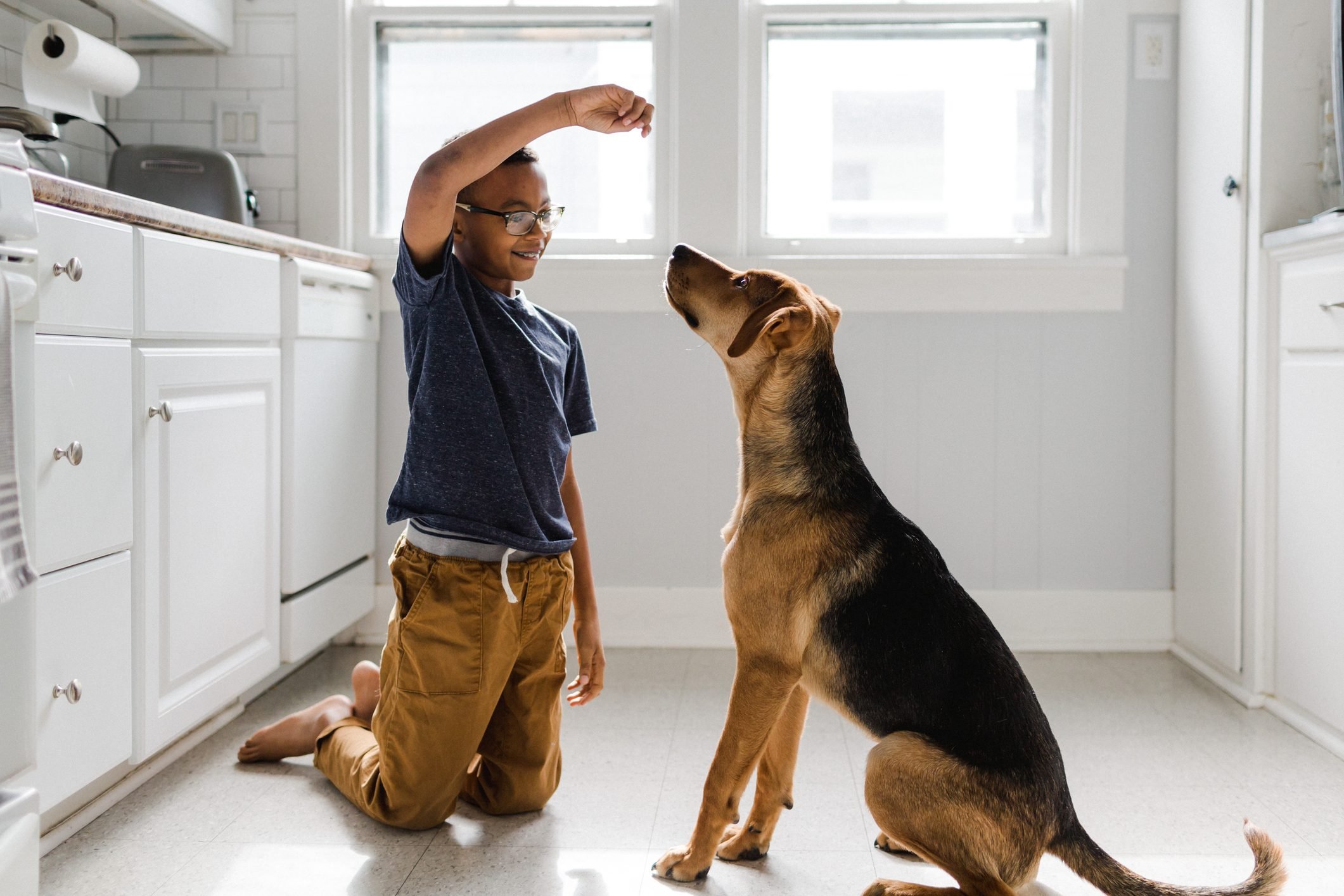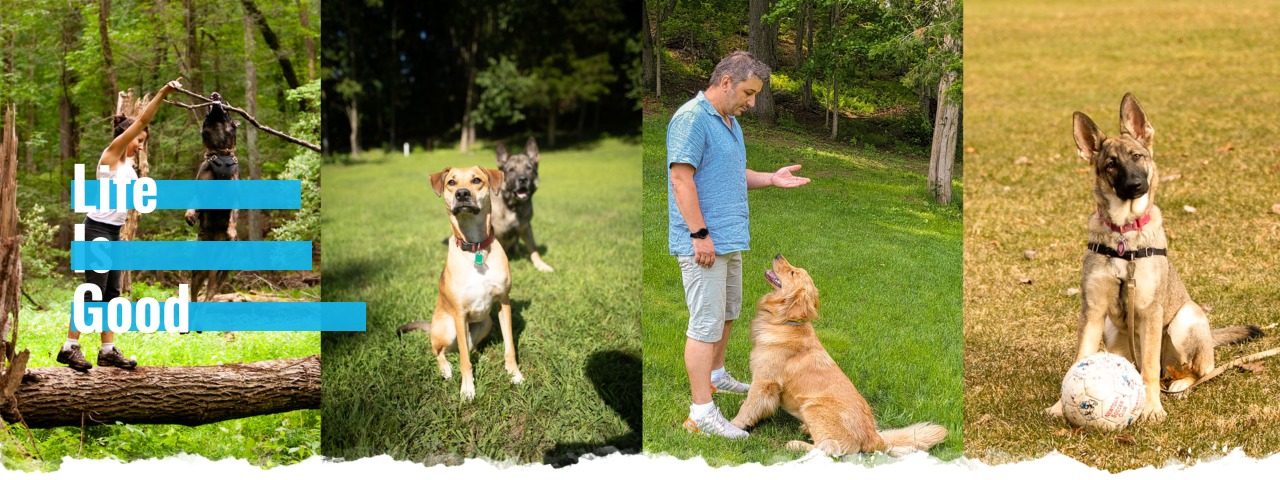Choosing the Right Dog Training For Dogs: Finding the Best Methods for Success
Choosing the Right Dog Training For Dogs: Finding the Best Methods for Success
Blog Article
Leading Pet Dog Training Methods for each Phase of Your Pet's Life
Reliable pet training is essential at every phase of a dog's life, as each stage provides unique difficulties and chances for growth - Dog Training For Dogs. From the foundational bonding techniques necessary for pups to the customized approaches needed for senior dogs, recognizing these critical durations can substantially enhance the human-animal bond. It is essential to recognize that training should advance together with a pet dog's growth, guaranteeing that techniques stay appropriate and effective. What particular techniques can be used to attend to the varying demands of your pet as it grows? The solution might amaze you.
Young Puppy Training Essentials
Puppy training basics lay the groundwork for a mannerly adult pet and include several essential parts that ought to not be neglected. The initial phase of training focuses on developing a solid bond between the puppy and its proprietor, which is important for reliable communication. Socializing is vital; subjecting puppies to different environments, individuals, and other animals helps them establish confidence and versatility, lowering the likelihood of behavioral issues later on in life.
Fundamental commands, such as rest, remain, and come, form the foundation of obedience training. Making use of favorable support techniques, such as deals with and appreciation, motivates desired habits and fosters a favorable learning experience. Consistency in commands and training sessions is crucial, as puppies thrive on routine and framework.
Furthermore, residence training is an important aspect of young puppy training. Developing a regular timetable for restroom breaks and using designated areas can aid decrease mishaps and advertise excellent habits. Overall, an all-round strategy to puppy training, incorporating obedience, residence, and socialization training, establishes the phase for a well-adjusted adult canine, guaranteeing a harmonious relationship between the family pet and its proprietor.
Teen Behavior Monitoring
As puppies mature into teenagers, their actions can change substantially, frequently presenting new obstacles for proprietors. This developmental stage, usually happening between six months and two years, is marked by enhanced power levels, interest, and a burgeoning sense of independence. Comprehending these adjustments is crucial for reliable habits administration.
Teenagers might exhibit defiant tendencies, such as overlooking commands they previously mastered or taking part in harmful habits. Consistency in training remains critical; strengthening learned behaviors through positive support can assist combat these obstacles. Short, interesting training sessions are important to maintain their passion and focus.

In addition, developing a structured regimen can considerably improve a teen dog's complacency. Regular exercise is vital to transport their energy favorably, lowering the likelihood of unwanted actions. By using these techniques, owners can successfully navigate the intricacies of adolescent actions, promoting a well-adjusted, pleased canine buddy.
Adult Pet Obedience Methods

Positive reinforcement continues to be a crucial technique; rewarding great actions with treats, praise, or play encourages conformity. Consistency is essential; the same commands and rewards ought to be made use of by all member of the family to stay clear of complication.
Incorporating training into daily routines can also work. For example, technique commands during strolls or meal times, enabling training to mix perfectly right into day-to-day life. Engaging in structured tasks, like agility courses or obedience courses, can further enhance a browse this site pet's skills while giving important socializing possibilities.
It is necessary to acknowledge that grown-up dogs may additionally show stubbornness or complacency. Adjusting training methods to maintain their interest, such as varying rewards or presenting new commands, can help suffer inspiration. Overall, an ongoing dedication to obedience training will promote a well-behaved and balanced grown-up pet dog.
Elderly Pet Dog Adaptation Techniques
Recognizing the one-of-a-kind demands of elderly dogs is important for ensuring their comfort and wellness. As dogs age, they may experience a decline in mobility, vision, and cognitive function, necessitating tailored adaptation approaches.
First, consider modifying the click now living setting. Ensure that the home is secure and easily accessible; get rid of challenges and offer non-slip surface areas to stop falls. Furthermore, take into consideration utilizing ramps or steps to help them access their preferred rooms.
Secondly, workout must be gotten used to account for decreased endurance and joint health (Dog Training For Dogs). Participate in much shorter, much more constant strolls, and include gentle tasks like swimming, which can be advantageous for arthritic joints
Furthermore, psychological excitement remains crucial. Usage straightforward challenge toys or take part in scent job to keep their minds sharp, while preventing overwhelming jobs that may frustrate them.
Lastly, normal veterinary check-ups are important to check wellness modifications and readjust care routines accordingly. By implementing these adaptation techniques, you can improve the lifestyle for your senior dog, ensuring they age gracefully and conveniently.
Lifelong Discovering and Enrichment
While pets of every ages take advantage of finding out and psychological stimulation, long-lasting enrichment is especially crucial for keeping cognitive health and psychological well-being in both senior and younger pets. Involving tasks not only boost a dog's lifestyle yet additionally enhance the bond between the pet and its proprietor.
Enrichment can take various kinds, consisting of interactive playthings, challenge feeders, and scent job, which stimulate a canine's detects and motivate problem-solving. Routine training sessions, integrating brand-new commands or methods, maintains their minds sharp and advertises a sense of success. Socializing with other dogs and individuals is similarly important, as it assists stop behavior concerns and fosters adaptability.
Furthermore, integrating workout right into a pet dog's routine is essential for general wellness. Activities like dexterity training, bring, or long walks give both physical and mental stimulation, making certain pet dogs remain satisfied and engaged.
Finally, consider differing the environment by introducing new places for walks or playdates. This modification can reignite a pet dog's inquisitiveness and enthusiasm for expedition. Long-lasting knowing and enrichment not only add to a satisfying life however likewise advertise an unified relationship with your canine buddy.
Conclusion
Efficient dog training techniques evolve throughout a canine's life, resolving the special needs of each developmental stage. Emphasizing regular mental stimulation, socializing, and physical exercise cultivates a More Bonuses well balanced and fulfilling life for pets.
Efficient pet training is essential at every phase of a pet dog's life, as each stage offers distinct obstacles and opportunities for growth.Puppy training essentials lay the foundation for a mannerly adult pet dog and involve a number of vital parts that need to not be forgotten. In general, a well-rounded method to puppy training, incorporating socializing, obedience, and house training, sets the phase for a well-adjusted grown-up dog, ensuring an unified partnership between the animal and its owner.
Many dog proprietors may find that grown-up canines, while normally more stable in habits than their teenage equivalents, still need regular training to keep obedience and great manners.Efficient dog training methods progress throughout a pet dog's life, dealing with the special demands of each developmental stage.
Report this page